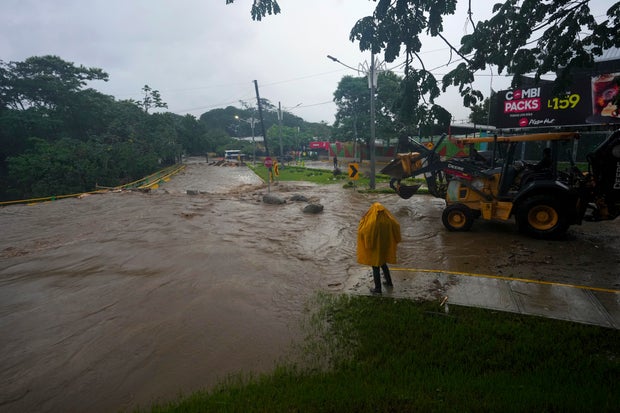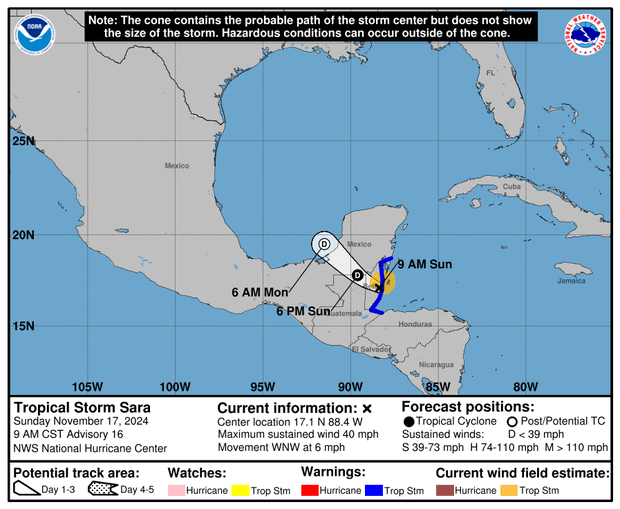Tropical Storm Sara makes landfall in Belize after drenching Honduras
Tropical Storm Sara made landfall in Belize on Sunday as forecasters expect heavy rain to cause life-threatening flash flooding and mudslides.
The storm made landfall near Dangriga, about 55 miles southeast of the capital Belmopan, the Miami-based National Hurricane Center said.
This comes after Sara drenched the northern coast of Honduras, where it stalled since Friday, swelling rivers and trapping people at home.
Moises Castillo / AP
One death was reported Saturday morning by Honduras Emergency Management, who also said that there have been at least 90 rescues and over 47,000 people affected by the storm.
The Hurricane Center’s tropical storm warning as of Sunday included Honduras’ Bay Islands as well as the country’s northern coast from Punta Castilla to its border with Guatemala; the Caribbean coast of Guatemala; Belize’s coast and northward into the coast of Mexico’s state of Quintana Roo, from Chetumal to Puerto Costa Maya.
The storm, which is moving at 6 mph, will continue to move inland over the Yucatan Peninsula and could drop up to 10 inches of rain across the area, with localized totals reaching 15 inches, through early next week. The conditions “will result in areas of flash flooding, perhaps significant, along with the potential of mudslides,” according to the Hurricane Center.
NOAA/National Hurricane Center
“A storm surge could raise water levels by as much as 1 to 3 feet above ground level near and to the north of where the center of Sara crosses the coast of Belize,” the center said Sunday. “Near the coast, the surge will be accompanied by large and destructive waves.”
Sara is the 18th named storm of the 2024 Atlantic Hurricane Season, which officially runs from June 1 until Nov. 30, with activity typically peaking between mid-August and mid-October. An average season brings 14 named storms, seven hurricanes, and three major hurricanes, according to the National Oceanic and Atmospheric Administration, which did predict the 2024 season would produce “above average” numbers.







